Eradicating Misconceptions about Anti-Conversion Bill
As the Karnataka Assembly passed an anticipated anti-conversion Bill, the mainstream media has seen a slew of misconceptions, misinterpretations (often deliberate), and in some cases, outright lies.
Total Views |
Last week, the Karnataka Legislative Assembly passed "The Karnataka Right to Freedom of Religion Bill, 2021," commonly referred to as the anti-conversion Bill, amid Opposition protests. According to the Bill, it prohibits conversion from one religion to another by misrepresentation, force, fraud, allurement or marriage.
The Bill states, "No person shall convert or attempt to convert either directly or otherwise any other person from one religion to another by use of misrepresentation, force, undue influence, coercion, allurement or by any fraudulent means or by marriage, nor shall any person abet or conspire for conversions."
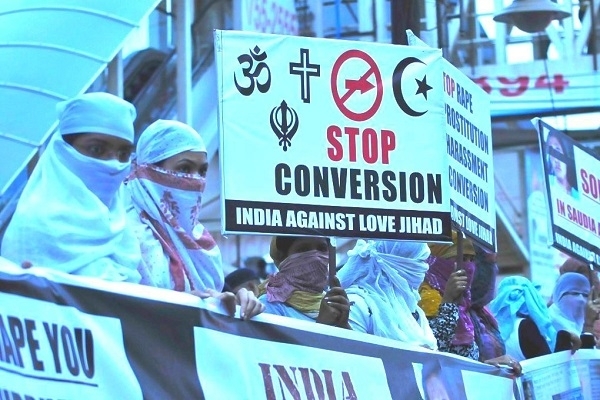
As the Karnataka Assembly passed an anticipated anti-conversion Bill, the mainstream media has seen a slew of misconceptions, misinterpretations (often deliberate), and in some cases, outright lies. Here is some facts to understand more about the law.
Firstly, Article 25 has been cited as the primary criticism of the law, saying that this will curb the religious freedom of minorities. In its face, the argument says that the Right to Propagate one's religion includes the Right to Convert (The Act speaks ONLY of forced conversions), However the Supreme Court has already given it's ruling on the questions of the right to convert, stating clearly that the Right to Propagate does NOT include the Right to Convert in the (Rev. Stanislaus V/s State of Madhya Pradesh and Orissa (1977) case.
It has stated, "the word 'propogate' has been used in the Article as meaning to transmit or spread from person to person or from place to place. The Artilce does not grant right to convert oher person to one's own religion but to transmit or spread one's religion by an exposition of its tenets."
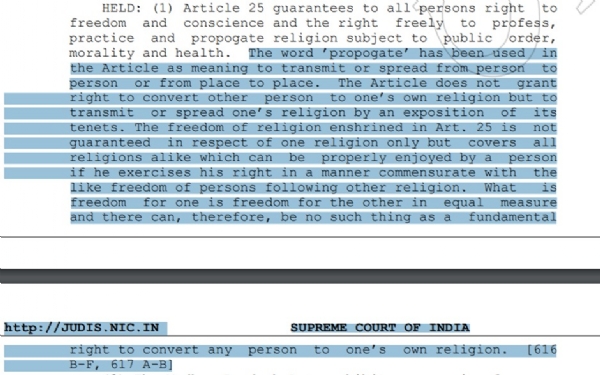
A common piece of yet another propaganda being spread is that the anti conversion laws are unheard of and it is a 'Hindu-Right' phenomenon, which is simply false. Such laws had been passed by several princely states, and post-independence, Odisha became the first state to enact such law (1967).
Apart from this, the erosion of India's indigenous identity, at the hands of missionaries is no secret. Uncomfortable truths are truths nonetheless, and the project of coercive conversions has played a huge role in the same. North East India is perhaps a "spectacular success" of the missionaries.
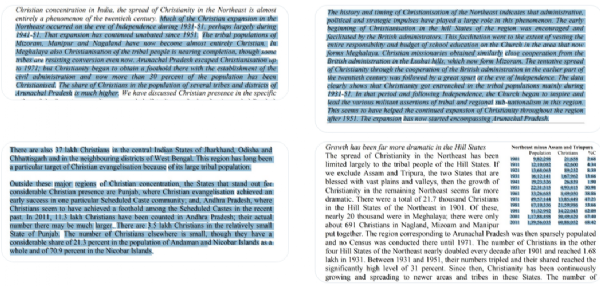
Source: Christian Mass Movements in India: A Study with Recommendations, J. Waskom Pickett, Director Mass Movement Study, National Christian Council of India, Burma and Ceylon, Foreword by John R. Mott, Christian Int'l Missionary Council.
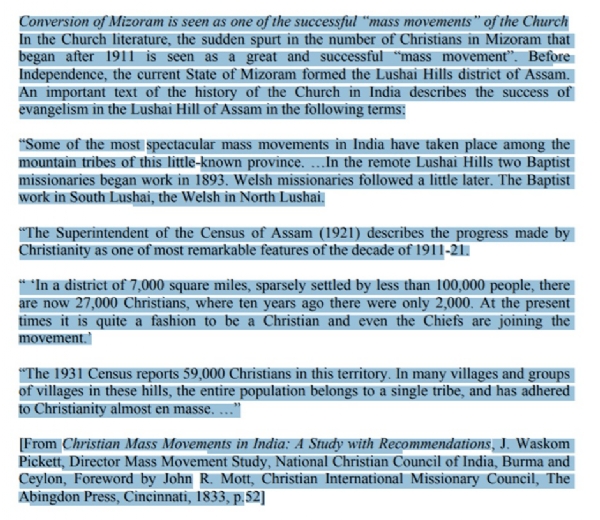
No matter what the political leadership yells from the House Floor, or the Bishops might tell you, the law in no way, shape or form targets a religious group. Not a single mention of the name of ANY religion can be found in the entire
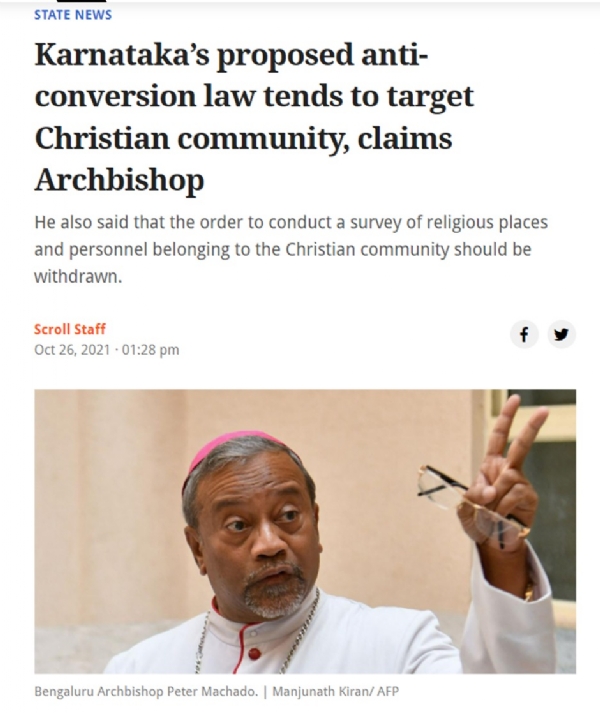
To understand any Bill, one must read its Statement of Object and Reasons (below).
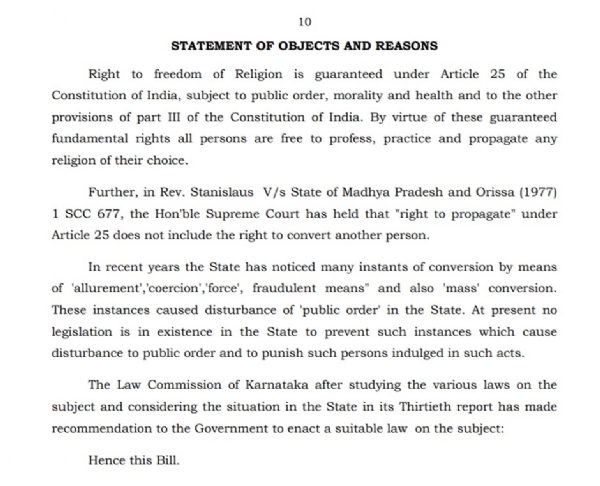
To say that the bill targets a specific community is an admission of guilt. If Christianity doesn't allow forced conversion in the first place, then how can this Bill be 'Anti-Christian'?

